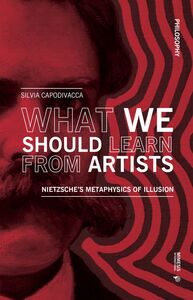
Roberto Marchesini presents a timely proposal within post-human philosophy in order to overcome the centuries-long separation between human beings, non-human animals and technology. This book highlights the inspiring nature of the relationship with non-human beings – what Marchesini calls “Epiphany” – and how its enhancement can open new existential dimensions. Technology is also reinterpreted, no longer as a performative tool, but as a virus that infiltrates the human dimension and changes its predicates. Technopoietic events are not just the product of human intelligence, but they arise from an epiphany (a becoming alterity), thus positioning technology well within the ontological and somatic dimension of human beings. This book lays the foundations for a new and non-anthropocentric Humanism, which is able to recognize the essential role that non-human alterities have had throughout our history.
Dettagli libro
-
Editore
-
Lingua
Inglese -
Data di pubblicazione
-
Collana
Sull'autore
Roberto Marchesini
Roberto Marchesini is Director of Siua (School of Human-Animal Interactions) and the Centro Studi Filosofia Postumanista (Center for the Study of Posthumanist Philosophy), both based in Bologna, Italy. He has been a prominent voice in the development of zooanthropology and posthumanism in Italy and teaches human-animal interactions as dialogues between minded interlocutors in courses around the country. He has written or co-written more than 30 books and 100 scientific essays. Amongst his main publications for the English-speaking audience: Over the Human. Post-humanism and the Concept of Animal Epiphany (Springer 2017), The Philosophical Ethology of Roberto Marchesini (Collected essays edited by. Jeffrey Bussolini, Brett Buchanan, & Matthew Chrulew, Rutledge 2017). Roberto Marchesini runs an ethology blog on the major Italian Newspaper “Il Corriere della Sera”, and he is also member of the following scientific and editorial boards: Minding Animal International, The World Phenomenology Institute, and the Book Series Numanities (Springer).






